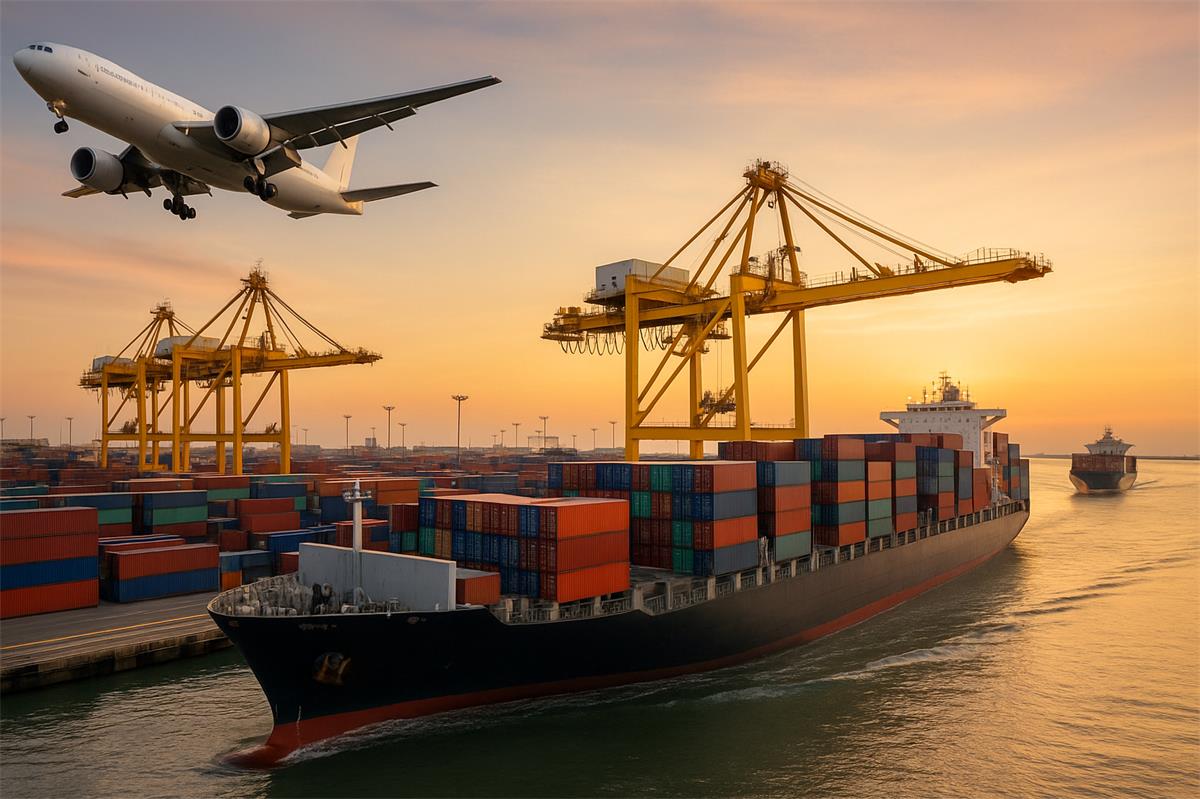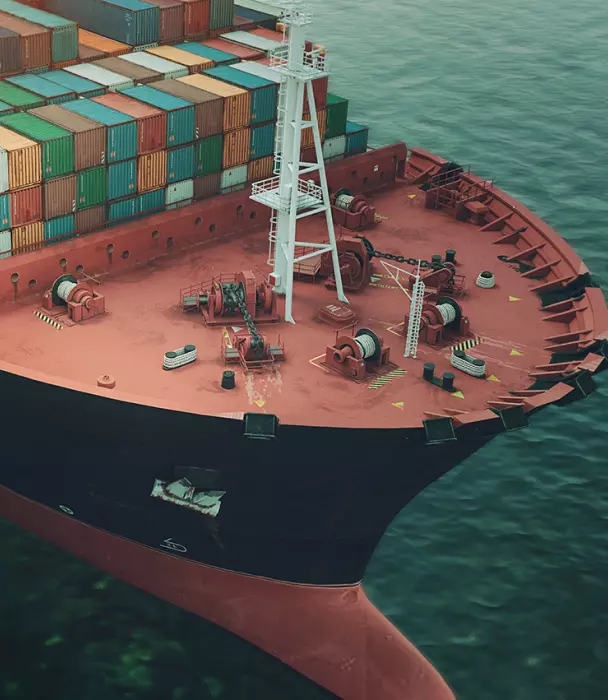When Black Friday first appeared on the American retail calendar, no one imagined it would one day send shockwaves through global logistics networks. What began as a single weekend of sales has transformed into a complex, international phenomenon- one that tests the limits of supply chains and freight forwarders every year.
Today, Black Friday e-commerce shipping isn’t just an American story. It’s a worldwide operation involving megabrands like Amazon, Alibaba, and Mercado Libre and together, they’ve rewritten the rules of global freight forever.
From Storefronts to Global Freight Storms
In the early 2000s, freight forwarders could still plan their operations around predictable trade cycles. Then came e-commerce, and with it, an entirely new rhythm of demand.
When Amazon turned convenience into a global expectation, it didn’t just change how people shop - it changed how goods move. Suddenly, inventory needed to travel faster, in smaller batches, and across multiple continents at once.
At the same time, Alibaba’s Singles’ Day logistics turned China’s warehouses and ports into a real-time display of precision. Billions of dollars in orders had to be fulfilled in hours, not weeks, setting new benchmarks for fulfillment centers and freight partners.
Meanwhile, in Latin America, Mercado Libre followed suit, building regional logistics networks to support its explosive growth. The ripple effects spread across air freight, ocean freight, and last-mile delivery systems.
This wasn’t just about online discounts, it was about delivering promises to doorsteps across continents. That required an entirely new playbook for Black Friday e-commerce shipping.
Before that, freight forwarding was a steady, predictable rhythm of cargo ships, warehouses, and customs clearances. But the synchronized surges created by these global shopping holidays were unprecedented. Ports became bottlenecks, air cargo space became gold, and the entire holiday e-commerce supply chain stretched to its limits.
When Giants Move, the World Moves
Amazon’s same-day delivery promise didn’t just pressure competitors, it redefined logistics standards worldwide. Now, every retailer must act like Amazon, whether they have the infrastructure or not.
Consider Singles’ Day, November 11th, a concept born from Alibaba. What started as an anti-Valentine's Day for single people in China rapidly became the largest online shopping day on earth. Imagine the logistical marvel of processing billions of dollars in orders, often within the first hour. This isn't just about moving goods from Shanghai to Shenzhen; it’s about ensuring deliveries from Beijing to Buenos Aires arrive within days.
The demands of Singles’ Day Alibaba logistics forced a massive evolution. Alibaba, through its logistics arm Cainiao Network, invested massively in automation, data analytics, and a network of smart warehouses. They didn't just use existing freight forwarding services; they often dictated terms, innovated solutions, and in many cases, built their own parallel systems to ensure packages kept moving.
Meanwhile, in Latin America, Mercado Libre replicated this intense e-commerce pressure. As Black Friday and other seasonal sales gained traction in countries like Brazil, Mexico, and Argentina, the need for robust, reliable cross-border and domestic shipping became paramount. Mercado Libre, much like Amazon, understood that controlling the logistics was key to customer satisfaction and continued growth. They invested in their own fulfillment centers, delivery networks, and even their own fleet, pushing traditional freight partners to either adapt or be left behind. The result? The freight forwarding industry was forced to transform- and fast.
The Lasting Impact: A New Era for Freight Forwarding
Traditional freight forwarding relied on manual coordination, phone calls, and paper documentation. That world is gone. The disruption caused by these e-commerce giants wasn't a passing challenge; it redefined the logistics landscape permanently:
-
Speed is the New Standard: Two-day and next-day delivery are no longer luxuries but expectations. Freight companies now optimize routes, integrate data, and prioritize speed above all.
-
Data-Driven Logistics: The data generated by e-commerce allows predictive planning and real-time visibility. Forwarders had to follow suit, adopting analytics to compete.
-
Increased Automation and AI: From robotic warehouses to AI-powered route optimization, technology became essential.
-
The Rise of Hybrid Models: Many forwarders now blend traditional expertise with digital solutions, some specializing in last-mile delivery or cross-border e-commerce fulfillment.
-
Infrastructure Investment: The holiday e-commerce boom has accelerated global investment in ports, air fleets, and storage hubs.
Platforms like All Forward emerged to give shippers and forwarders instant access to rates, transparent costs, and real-time tracking, empowering businesses to thrive during Black Friday e-commerce shipping peaks and beyond. Automation, visibility, and AI now define competitive advantage. The future belongs to those who merge technology with human expertise seamlessly.
What’s Next for Global Freight?
Black Friday is more than just a shopping holiday; It's an annual stress test for the global supply chain (same goes for singles' day). The story of how Amazon, Alibaba, and Mercado Libre turned one weekend into a worldwide freight shockwave is a testament to innovation, relentless customer focus, and the power of scale. For the freight forwarding industry, it was a wake-up call, a catalyst that accelerated an inevitable evolution, making global trade faster, smarter, and more interconnected than ever before.
As e-commerce continues to globalize, the line between retailer and logistics company keeps blurring. The next wave- powered by AI, predictive analytics, and sustainable shipping, will anticipate demand before it happens.
Black Friday started as a shopping spree. It became a global logistics test. Now, it’s a yearly reminder that in today’s world shipping speed, data, and adaptability define who wins the race.


